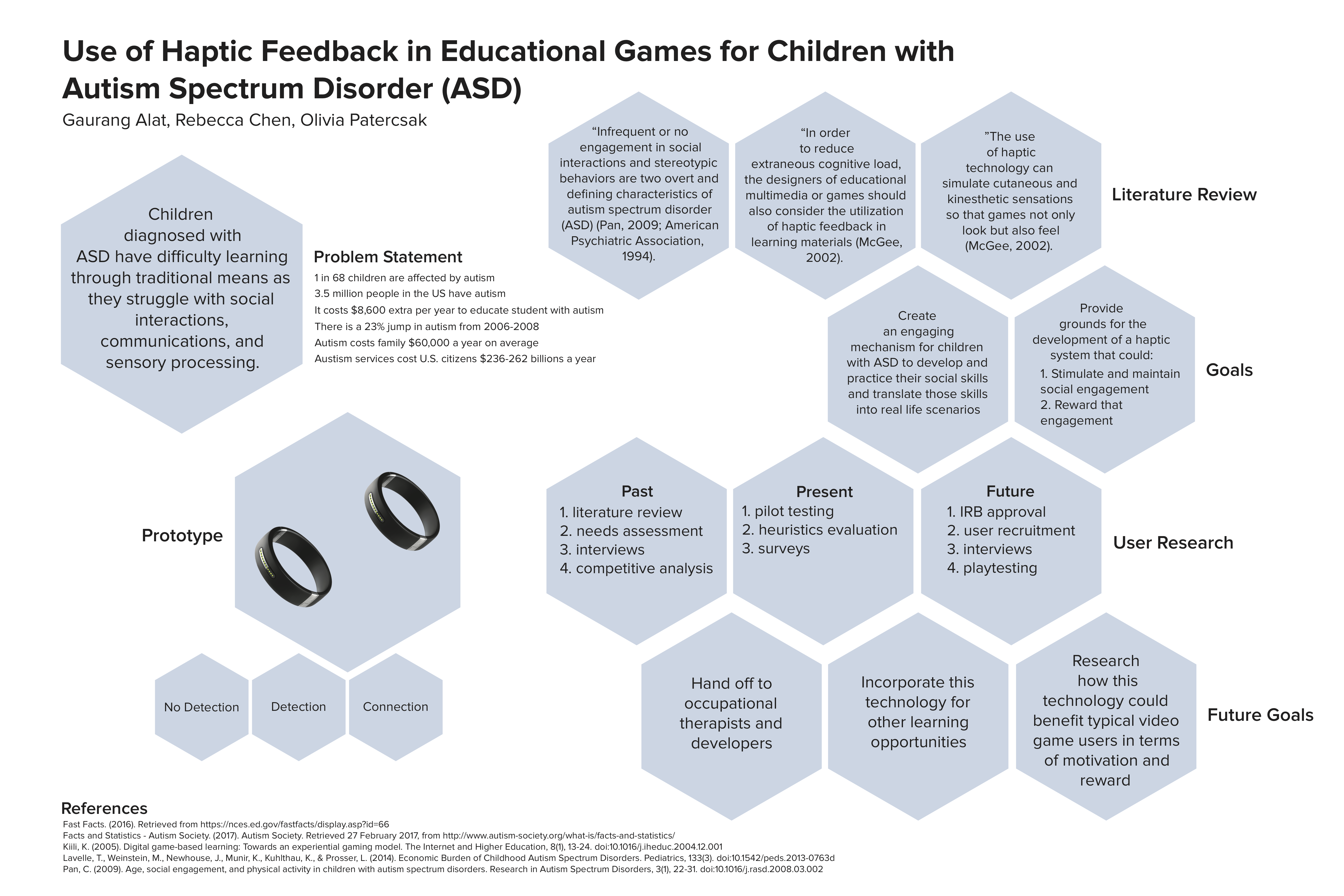
Use of Haptic Feedback in Educational Games for Children with Autism Spectrum Disorder
About: Children diagnosed with Autistic Spectrum Disorder (ASD) have difficulty learning through traditional means as they struggle with social interactions, communication, and sensory processing. Traditionally, haptic feedback is utilized in video games to create a more realistic experience for the user. We want to research the use of haptic feedback in educational games with hopes to develop a device that can mimic its use and transform it in a way that can help children with ASD stay engaged in their educational goals, with the intent of helping them translate these skills into real life scenarios. Ultimately, we hope that this research will provide grounds for the development of a haptic system that could stimulate engagement in children with ASD, maintain a continuous engagement, and reward that engagement to encourage them to develop and practice these their social skills.
Role:UX Researcher in a team of 3
Honors: Selected proposal for the Games Developers Conference UX Summit February 2017 & March 2017 in San Francisco, CA; Recipient of the University of Michigan School of Information Travel Grant 2017; 1st Place Community Award at the UMSI Exposition Symposium 2017
Timeframe: September 2016 - present
Process
Literature Review
We explored research regarding the characteristics of Autism Spectrum Disorder (ASD), learning and educational games for children with these needs, and also haptic feedback technologies in gaming systems to understand the scope of our problem statement.
Key Findings:
"Infrequent or no engagement in social interactions ... are defining characteristics of ASD." (Pan, 2009)
"In order to reduce extraneous cognitive load, designers of educational multimedia games should also consider the use of haptic feedback." (McGee, 2002)
"The use of haptic technology can simulate cutaneous and kinesthetic sensations so that games not only look but also feed." (McGee, 2002)
Interviews
We spoke with special needs educators, as well as professors with experience in gaming and haptic technologies to further understand needs and get feedback on our idea.
Interview Quotes:
“Because students with ASD have reciprocity deficits, we work on socialization skills through other children in the classroom with other disabilities...” - Special Needs Educator
"A clear reward system should be in place for a game - stimulate, engage, and reward." - Haptic Technologies Professor
Comparative Analysis
We reviewed various educational games currently on the market or in use in a special needs classroom setting to understand what is successful and how our idea could potentially fill in any gaps.
Prototyping
We created paper prototoypes, as well as 'body-stormed' - a role-playing type of brainstorming that allowed us to run through the use of the device. Ultimately, we hope to create a working prototype using Arduina and sensors.
Poster

